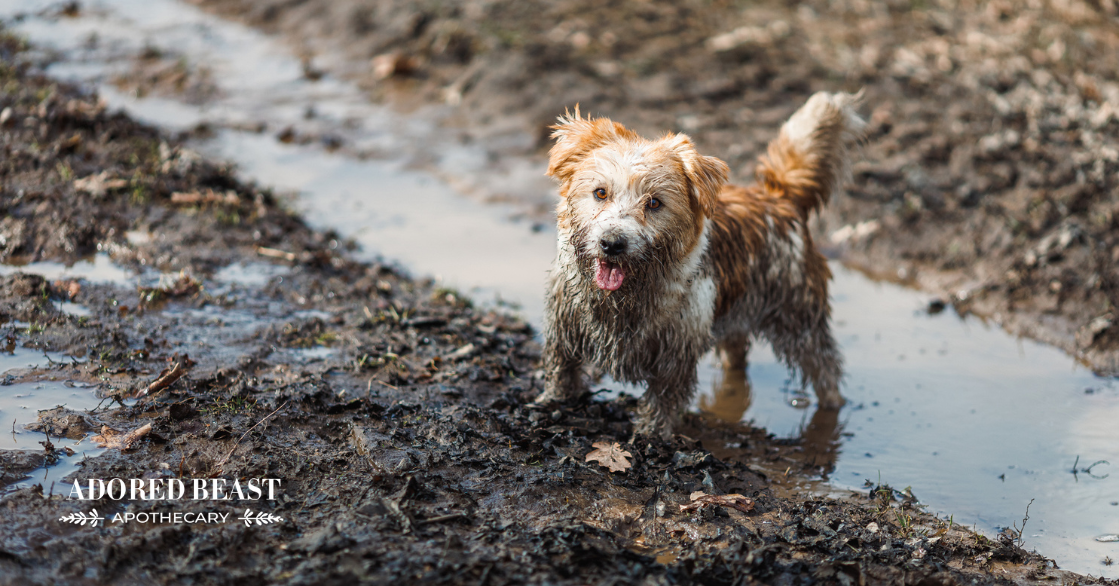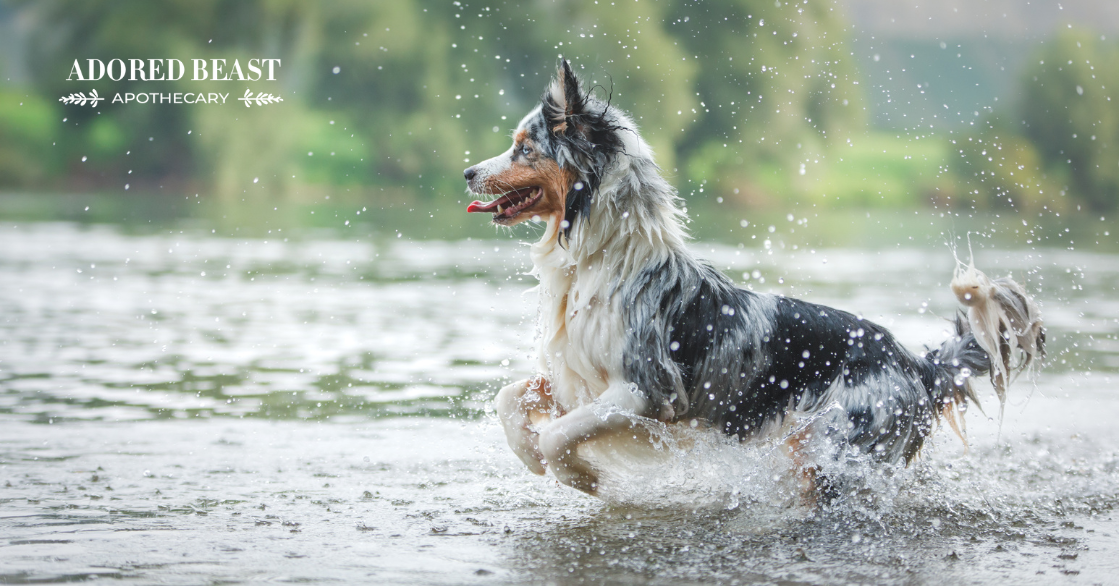Today, it seems like everywhere you turn, someone is talking about gut health. And you really can’t talk about gut health without talking about probiotics.
Then, as part of the discussion, you’ll hear terms like lactobacillus, bacterial diversity, CFUs, strains, the microbiome…
Sometimes it can be tough to wrap your head around everything you need to know!
So, to help out, we’re diving deep into a question we get asked fairly regularly: what’s the difference between regular and soil based probiotics for dogs?
What are Probiotics?
Probiotics, whether regular or soil based, are all “the same” as far as what they are. They’re live bacteria that live in the body, with particular concentrations in the gut. Probiotics are often called “good” or “helpful” bacteria because they help keep the gut healthy.
Probiotics can help balance out the gut microbiome and defend against bad bacteria. When “good” bacteria is lost, for example after antibiotics, probiotics can help replace them. And since 80% of immune health stems from the gut, that’s a really good thing for overall health.
Research is plentiful on the benefits of probiotics for the body. Studies have shown that they can be beneficial for everything from digestive upset (think diarrhea) and irritable bowl disease (IBD), to allergies and skin health, to supporting immunity and regulating inflammation.
Regular vs. Soil Based Probiotics for Dogs
What’s the difference between regular and soil based probiotics? There are a few things…
Regular probiotics are typically found in the human gut and can easily be found in a variety of fermented foods like yogurt, kimchi, real sauerkraut, and more. You’ve maybe heard about the most common strains: lactobacillus or bifidobacterim (you won’t find these in soil based probiotics). There are many that fall into this “regular” category.
In contrast, soil-based probiotics come from soil-based organisms (SBOs). These are bacterial organisms naturally found in soil and water. These are things we (and our dogs) used to get naturally from vegetables grown in the soil, and we used to come in contact with them all the time. Even just dogs rolling their prey around in the dirt! I do “bone days” in my backyard where my dogs hang out and snack on raw, meaty bones to get SBOs the way Mother Nature intended! But modern agricultural farming practices clear our food of these valuable SBOs, so now they’re lacking. Soil based probiotics give them back. (Regular probiotics don’t contain these SBOs).
The structure is also different. SBO probiotics have a natural, seed-like structure, making them hardier than regular probiotics. Regular probiotics populate higher up in the digestive tract, doing their work there. But soil based probiotics survive the journey through the stomach with the help of far fewer colony-forming units (CFUs) than lactobacillus-based supplements, so they reach an entirely different part of the body!
The Benefits of Soil Based Probiotics for Dogs
There are many benefits of all probiotics – both regular and soil based.
We are big believers in diversity, found most often through rotation. By rotating different probiotics into the routine, you’re allowing for the growth of diverse bacterial communities in the gut! That’s a really good thing. That means introducing both regular strains (lactobacillus or bifidobacterim) and soil based strains. Then your pet gets the benefits of both!
But there are times when soil based probiotics are the best choice.
For example, with SIBO (Small Intestine Bacterial Overgrowth), soil based probiotics are much preferred. When a dog has SIBO, regular lactobacillus or bifidobacterim probiotics can propagate in the small intestine, exacerbating the problem and actually making it worse. Instead, because of their structure, soil based probiotics remain intact until they reach the lower intestine and colon.
In the end, the type of probiotic you choose for your adored beast will depend on what you need it for. If you’re not dealing with a concern like SIBO, rotating through the most diverse range is only going to give the gut more friendly bacteria – and thus more benefits! But, if SIBO is a consideration, soil based probiotics for dogs are your best bet.












